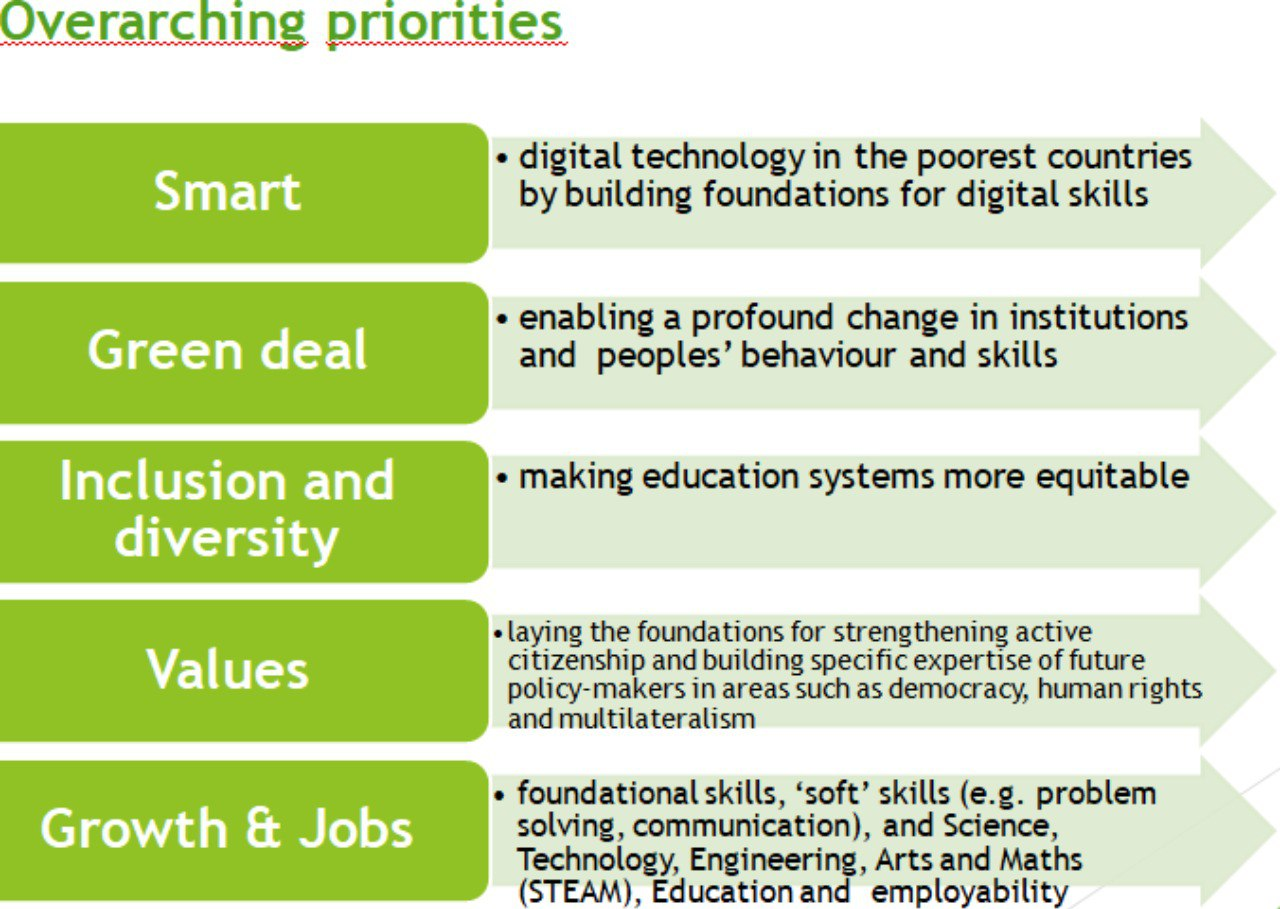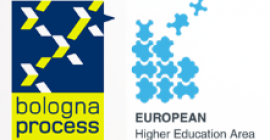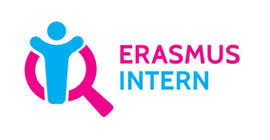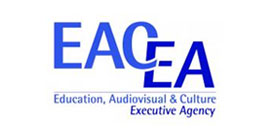About Erasmus
Erasmus+ is the European Union's programme to support projects, partnerships, events and mobility in the areas of education, training, youth and sport. It provides funding opportunities for cooperation in all these areas among 33 European countries (Member States + associated countries). It has a strong international dimension for cooperation between these 33 countries and third countries across the world. This strong international focus requires promotion in your countries.
Erasmus+ provides a range of opportunities that have an international dimension, both for individuals and for institutions. Most projects are based on a partnership between 33 European countries on the one hand and other countries throughout the world on the other.
Erasmus+ replaces seven previous most successful programmes bringing together, as well as Tempus and Erasmus Mundus, which up to date has been continuing to be the main instruments of the EU to support the modernization of higher education in Uzbekistan.
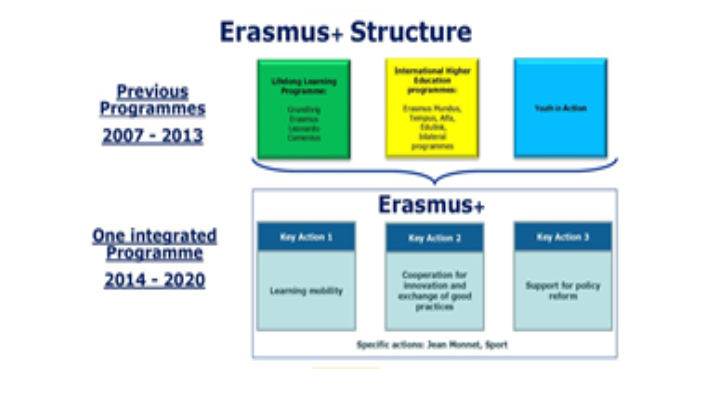
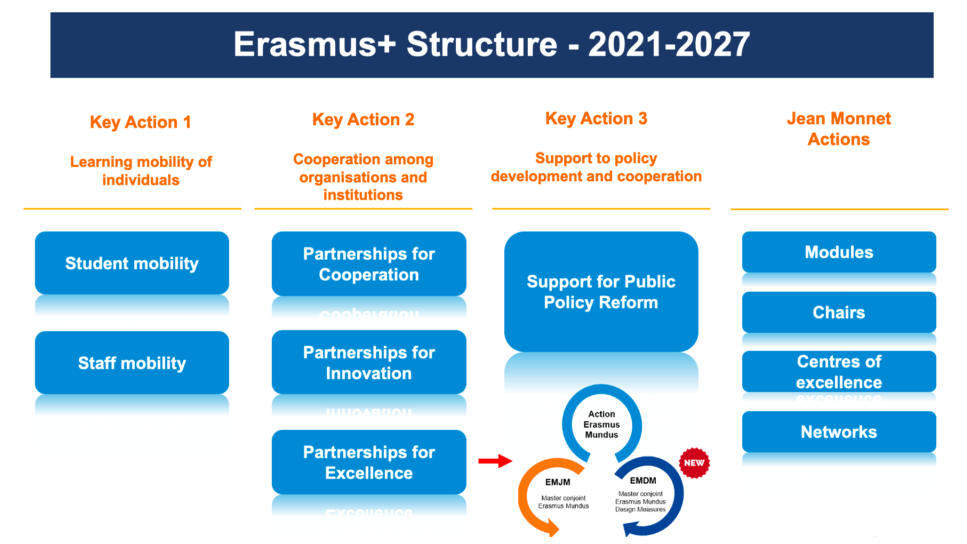
It has an estimated budget of €26.2 billion. This is nearly double the funding compared to its predecessor programme (2014-2020).
Over the next seven years, Erasmus+ will provide €16.5 billion to strengthen education, training, youth and sport in Europe, allowing more than 4 million young people to gain experience and skills by studying, training or volunteering abroad. Furthermore, the programme supports over 125,000 institutions and organisations to work with peers in other countries to innovate and modernise teaching practice and youth work. The programme offers a number of opportunities for higher education students, doctoral candidates, staff and higher education institutions (HEIs) from around the world.
The 2021-2027 programme places a strong focus on social inclusion, the green and digital transitions, and promoting young people’s participation in democratic life.
It supports priorities and activities set out in the European Education Area, Digital Education Action Plan and the European Skills Agenda. The programme also
• supports the European Pillar of Social Rights
• implements the EU Youth Strategy 2019-2027
• develops the European dimension in sport
Erasmus+ is managed at European level by the European Commission and is divided into two parts: decentralised and centralised activities.
Centralised activities are managed directly by the European Commission’s Education, Audiovisual and Culture Executive Agency
The following directions of the Erasmus+ Programme are open for higher educational institutions of Uzbekistan:
1. Capacity Building in Higher Education;
2. Credit Mobility;
3. Joint Master Degrees;
4. Jean Monnet.
Priorities of the Erasmus+ Programme
